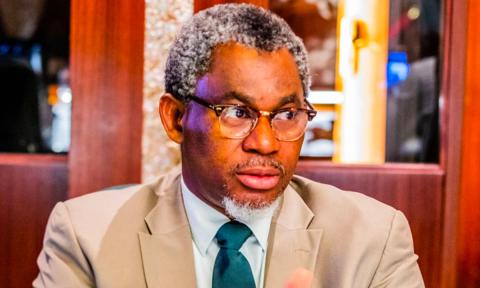
Adegbite said this in his speech at the 2022 Prospectors and Developers Association of Canada (PDAC), International Convention, Trade Show and Investors Exchange in Toronto, Canada on Thursday.
The Minister of Mines and Steel Development, Mr Olamilekan Adegbite, says Nigeria has 44 quality commercial minerals in over 500 locations across Nigeria.
Adegbite said this in his speech at the 2022 Prospectors and Developers Association of Canada (PDAC), International Convention, Trade Show and Investors Exchange in Toronto, Canada on Thursday.

During the speech titled “The Mechanisms of Transparency and Commitment in Mining Governance as Tool for Attracting Foreign Direct Investment to Nigeria,” the minister said Nigeria is blessed with 44 different types of minerals in commercial quantities in over 500 locations in the 36 states and the Federal Capital Territory (FCT), the News Agency of Nigeria (NAN) reports.
According to him, the minerals broadly cut across the various mineral spectrums, adding that these deposits are categorised into five groups according to their uses
They include baryte, kaolin, gypsum, feldspar, limestone, and energy minerals such as coal, bitumen, lignite, and uranium.
Others include metallic ore minerals such as gold, cassiterite, columbite, iron ore, lead-zinc, and copper; construction minerals such as granite, laterite and sand.
He said precious stones available in the country include sapphire, tourmaline, emerald, topaz, amethyst, and garnet.
“This clearly demonstrates the wide mineral spectrum we are endowed with, which offers limitless opportunities along the value chain, for job creation, revenue growth among others.
“Nigeria provides one of the highest rates of return because its minerals are closer to the surface,” he said.
He said that the first phase of the mineral exploration project which was the National Integrated Mineral Exploration Programme (NIMEP), designed to rapidly generate bankable geoscientific data had been completed.
He said the aim of the project was to de-risk the sector and attract high-calibre investments, adding that target minerals under the first phase include gold, lead-zinc, iron ore, and battery minerals.
He said, “The contractors have executed and completed the exploration works on Gold, Platinum Group of Elements (PGEs), Lead-Zinc, Iron Ore and Barites; results on Greenfields and Brownfields are in process to be declared for investment opportunities.”
The minister said the Nigerian Government had also commenced the process of retrieving the country’s colonial geological data from the United Kingdom.
He said, “We are engaging the British Geological Survey (BGS) to build a national electronic geo-data archiving management system to be called the Nigerian Geo-Data Center at the Nigerian Geological Survey Agency (NGSA).
“This will provide easy access to geoscience data for prospective investors on potential areas to target for exploration and mining within and outside Nigeria.
“Currently, there is an ongoing review of the Nigerian Minerals and Mining Act 2007.
“The aim of the review is to bring legislation into conformity with global best practices, limiting the role of government to that of regulation and creating space for the private sector to maintain a more expansive presence in the sector.”
Despite having the highlighted minerals, Nigeria heavily relies on oil and gas and petroleum exports for its revenue.
According to the Organisation of the Petroleum Exporting Countries (OPEC), the oil and gas sector accounts for about 10 per cent of Nigeria’s gross domestic product, and petroleum exports revenue represents around 86 per cent of total exports revenue.